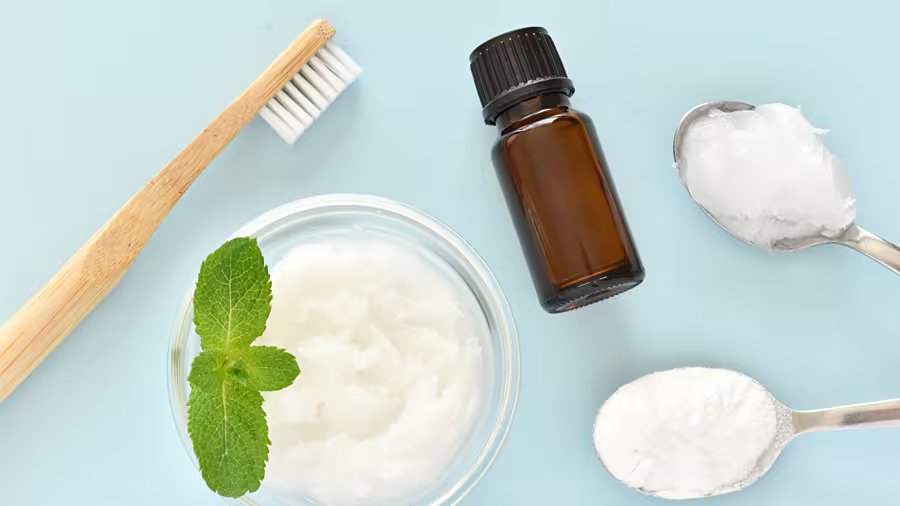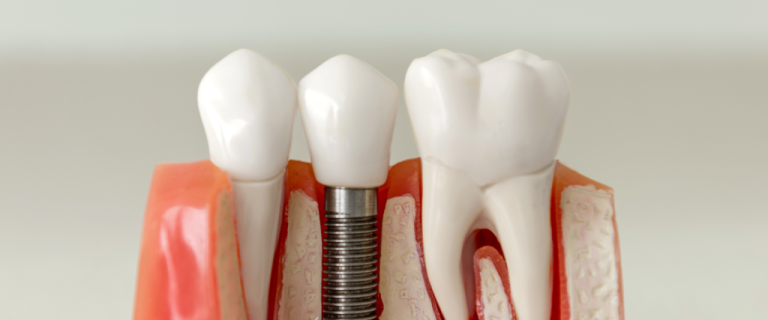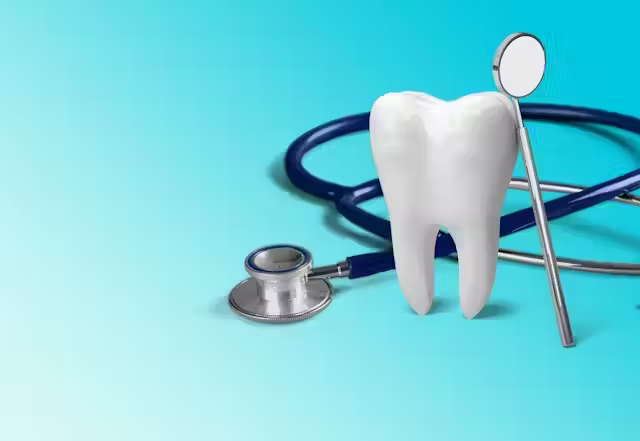Natural Toothpaste Alternatives: Effective Options for Oral Health
In recent years, there’s been a noticeable shift in how we approach personal care, and oral health is no exception. More and more people are ditching traditional products in favor of natural alternatives, and for good reason! With a growing awareness of the ingredients we put into our bodies, many are turning to natural toothpaste options that promise to be effective while also being kinder to the environment. If you’ve ever wondered about the benefits of these alternatives or what makes them tick, you’re in the right place!
Natural toothpaste alternatives not only cater to those looking for eco-friendly choices but also appeal to anyone interested in maintaining optimal oral health without the harsh chemicals often found in conventional toothpastes. So, let’s dive into the world of natural ingredients that can keep your pearly whites shining bright!
Overview of Common Natural Ingredients in Toothpaste
When it comes to natural toothpaste, the ingredients can vary widely, but some stand out for their remarkable benefits. Here’s a closer look at some common natural ingredients that you might find in these products:
Neem
Neem has been used for centuries in traditional medicine, particularly in India. This powerful ingredient boasts antibacterial properties that can help combat plaque and promote gum health. If you’ve ever had issues with gum inflammation or bad breath, neem might just be your new best friend!
Xylitol
You might have heard about xylitol as a sugar substitute, but did you know it’s also a superstar when it comes to oral health? This naturally occurring alcohol sugar helps reduce cavity-causing bacteria and promotes saliva production, which is essential for neutralizing acids in the mouth. Many people swear by xylitol as a game changer for their dental routine.
Aloe Vera
Aloe vera isn’t just for soothing sunburns; it’s also a fantastic addition to your oral care regimen! Known for its anti-inflammatory properties, aloe vera can help soothe irritated gums and promote overall gum health. Plus, its natural sweetness makes it a pleasant ingredient in toothpaste.
Coconut Oil
Coconut oil has taken the wellness world by storm, and its benefits extend to oral care as well. Often used in oil pulling—a practice where you swish oil around in your mouth to remove bacteria—coconut oil can help reduce plaque buildup and fight harmful bacteria. It’s a simple yet effective way to enhance your dental hygiene routine.
Calcium Carbonate
This natural mineral is often used as a gentle abrasive in toothpaste. It helps remove plaque without damaging tooth enamel. Plus, it can provide essential minerals that support strong teeth. If you’re looking for something effective yet gentle, calcium carbonate is worth considering.
These ingredients not only contribute to effective cleaning but also align with a more holistic approach to oral health. As we explore further into the effectiveness of natural toothpastes and how they stack up against conventional options, keep these powerful ingredients in mind!
Effectiveness of Natural Toothpastes
When it comes to maintaining oral health, the effectiveness of your toothpaste is paramount. Many people wonder if natural toothpastes can hold their own against conventional options. Let’s break down how these natural alternatives perform in key areas like plaque removal and cavity prevention.
Plaque Removal
One of the primary functions of toothpaste is to help remove plaque—a sticky film of bacteria that forms on teeth. Research indicates that many natural ingredients can be just as effective as their conventional counterparts. For instance, studies have shown that xylitol not only helps reduce the amount of plaque but also inhibits the growth of harmful bacteria. Users often report noticeable improvements in their oral hygiene after switching to a toothpaste containing xylitol.
Similarly, neem has been found to be effective in reducing plaque accumulation. Its antibacterial properties can help keep your gums healthy and free from inflammation. If you’ve ever struggled with stubborn plaque, trying a natural toothpaste with neem might be worth your while!
Cavity Prevention
Cavities are a common dental issue, and prevention is key. Natural toothpastes often contain ingredients that work synergistically to combat cavity formation. For example, xylitol not only helps reduce plaque but also neutralizes acids produced by bacteria, lowering the risk of cavities. Many users find that incorporating xylitol into their oral care routine has led to fewer visits to the dentist for fillings.
Aloe vera also plays a role in cavity prevention due to its ability to enhance gum health and reduce inflammation. Healthier gums mean better overall oral health, which can contribute to lower cavity rates. Plus, with its natural sweetness, aloe vera makes brushing a more pleasant experience!
Anecdotal Evidence
While scientific studies provide valuable insights, personal experiences can be just as telling. Many individuals who have made the switch to natural toothpastes report feeling cleaner and fresher after brushing. For instance, one user shared how they noticed less sensitivity and improved gum health after using a toothpaste with coconut oil and neem for just a few weeks.
Moreover, some parents have turned to natural toothpastes for their children, citing concerns over fluoride exposure and artificial additives in conventional products. They often find that their kids enjoy the flavors of natural toothpastes—like mint or coconut—making brushing a more enjoyable experience.
The effectiveness of natural toothpastes in plaque removal and cavity prevention is backed by both research and personal testimonials. With ingredients like xylitol, neem, and aloe vera leading the charge, these alternatives are proving to be formidable contenders in the quest for optimal oral health. As we move forward, let’s compare these natural options with traditional toothpastes to see how they stack up!
Comparison of Natural vs. Conventional Toothpastes
When it comes to choosing the right toothpaste, the decision often boils down to natural versus conventional options. Both types have their pros and cons, but understanding the key differences can help you make an informed choice that aligns with your health and lifestyle preferences. Let’s dive into the nitty-gritty of how these two categories stack up against each other.
Ingredient Differences
One of the most significant distinctions between natural and conventional toothpastes lies in their ingredients. Conventional toothpastes often contain synthetic additives, artificial flavors, and preservatives that can raise eyebrows. Common ingredients like sodium lauryl sulfate (SLS), triclosan, and artificial sweeteners are frequently found in traditional formulations. While these ingredients may enhance flavor or improve texture, they can also lead to concerns about long-term health effects.
On the flip side, natural toothpastes typically boast a shorter ingredient list filled with recognizable components. Ingredients like neem, xylitol, coconut oil, and baking soda are common in natural formulations. These ingredients not only promote oral health but also align with a more holistic approach to personal care. If you’re someone who prefers to know exactly what goes into your body, natural toothpaste may be the way to go.
Health Considerations
Health-conscious consumers are increasingly wary of the chemicals found in many conventional toothpastes. For instance, some studies have raised concerns about the long-term effects of fluoride, a common ingredient in traditional toothpaste that helps prevent cavities. While fluoride is endorsed by many dental professionals, some individuals prefer to avoid it altogether for various reasons.
Natural toothpastes often cater to this demographic by offering fluoride-free options that still effectively combat cavities through alternative ingredients like xylitol. Additionally, many natural brands are free from artificial colors and flavors, making them appealing for those with sensitive teeth or allergies.
Effectiveness
The effectiveness of natural versus conventional toothpaste can be a hot topic among dental professionals and consumers alike. While conventional toothpastes have been extensively studied and are generally recognized for their cavity-fighting abilities, many natural alternatives have also shown promising results.
For example, a study published in the Journal of Clinical Dentistry found that xylitol-containing toothpaste was just as effective as fluoride toothpaste in reducing cavities among children. Similarly, neem has been shown to effectively reduce plaque and gingivitis when used regularly.
However, it’s essential to note that individual experiences may vary. Some people find that conventional toothpaste works better for them, while others swear by their natural alternatives. It often comes down to personal preference and specific oral health needs.
User Experience
Let’s not forget about user experience! Many people report enjoying the taste and texture of natural toothpastes more than traditional ones. The absence of artificial flavors can make for a more pleasant brushing experience—especially for kids who might be picky about minty freshness.
Moreover, some users appreciate the eco-friendly packaging that many natural brands offer. If you’re looking to reduce your environmental footprint, opting for a natural toothpaste with sustainable packaging can be a small yet impactful choice.
When comparing natural and conventional toothpastes, it’s clear that both options have their merits. While conventional toothpastes are backed by extensive research and proven effectiveness, natural alternatives offer a refreshing change with fewer synthetic ingredients and potential health benefits. The best choice ultimately depends on your personal preferences and dental needs. Now that we’ve explored these differences, let’s discuss how to choose the right natural toothpaste for you!
Considerations for Choosing the Right Natural Toothpaste
With a plethora of natural toothpaste options available on the market, selecting the right one can feel a bit overwhelming. But don’t worry! Here are some key considerations to help you navigate your choices and find a natural toothpaste that suits your needs.
1. Ingredient Transparency
One of the first things to look for is ingredient transparency. A high-quality natural toothpaste should have a clear and concise ingredient list. Avoid products that contain vague terms like “natural flavors” or “fragrance.” Instead, opt for brands that specify their ingredients, allowing you to know exactly what you’re putting in your mouth.
Check for well-known natural ingredients like xylitol, neem, or baking soda, which have proven benefits for oral health. If you’re unsure about any ingredient, a quick online search can often provide clarity.
2. Specific Dental Needs
Consider your specific dental needs when choosing a natural toothpaste. For example:
- Sensitivity: If you have sensitive teeth, look for toothpastes that contain soothing ingredients like aloe vera or calcium carbonate.
- Cavity Prevention: If cavity prevention is your main concern, opt for toothpastes with xylitol or other cavity-fighting ingredients.
- Gum Health: For those dealing with gum issues, neem or tea tree oil can be beneficial due to their antibacterial properties.
Identifying your primary concern will help narrow down your options and lead you to the most effective product for your situation.
3. Certifications and Labels
When shopping for natural toothpaste, pay attention to certifications and labels. Look for products that are labeled as organic, cruelty-free, or non-GMO. These certifications can provide peace of mind regarding the sourcing and manufacturing practices of the product.
Additionally, some brands may carry dental associations’ endorsements, which can further validate their effectiveness and safety.
4. Flavor and Texture
Let’s be honest—nobody wants to use a toothpaste that tastes terrible! Many natural toothpastes come in a variety of flavors, from classic mint to more unique options like coconut or cinnamon. If you’re trying to get kids on board with brushing their teeth, finding a flavor they enjoy can make all the difference.
Texture is another factor to consider. Some natural toothpastes may feel different than conventional ones—perhaps grainier or creamier—so it might take some experimentation to find one that feels just right in your mouth.
5. Brand Reputation
Do a little homework on the brands you’re considering. Look for companies that prioritize sustainability and ethical practices in their production processes. Reading customer reviews can also provide insight into how well a product performs and whether it lives up to its claims.
If possible, try to choose brands that are transparent about their sourcing and manufacturing processes. Supporting companies that align with your values can enhance your overall experience with the product.
Choosing the right natural toothpaste doesn’t have to be a daunting task. By considering ingredient transparency, specific dental needs, certifications, flavor preferences, and brand reputation, you can confidently select a product that supports both your oral health and your values. Now that we’ve covered how to choose the best natural toothpaste for you, let’s wrap up our discussion on these effective alternatives!
Conclusion
As the trend towards natural and organic products continues to grow, exploring natural toothpaste alternatives presents a compelling option for those seeking effective and environmentally friendly oral care solutions. With ingredients like neem, xylitol, aloe vera, and coconut oil leading the charge, these natural toothpastes not only help maintain oral health but also align with a more holistic lifestyle.
By understanding the effectiveness of natural ingredients in plaque removal and cavity prevention, you can feel confident in making the switch. While conventional toothpastes have their merits, natural options offer a refreshing alternative without the synthetic additives that some consumers prefer to avoid.
When choosing the right natural toothpaste, keep in mind factors such as ingredient transparency, your specific dental needs, certifications, flavor preferences, and brand reputation. With a little research and consideration, you can find a product that not only meets your oral health goals but also supports your values.
So why not give natural toothpaste a try? You might just discover that these alternatives are not only good for your teeth but also great for your overall well-being. Happy brushing!
FAQs
Q: Why consider natural toothpaste alternatives?
A: Many commercial toothpastes contain artificial ingredients, harsh chemicals, and additives that some individuals prefer to avoid due to sensitivities, allergies, or personal preferences.
Q: What are some effective natural alternatives to toothpaste?
A: Options include baking soda, coconut oil, charcoal powder, herbal tooth powders, and oil pulling.
Q: How does baking soda benefit oral health?
A: Baking soda is a mild abrasive that can help remove surface stains and plaque, and it also helps neutralize acids in the mouth.
Q: Is coconut oil effective for oral hygiene?
A: Yes, coconut oil has antimicrobial properties that can help reduce bacteria in the mouth. Oil pulling with coconut oil is a popular method.
Q: What are the benefits of using charcoal powder on teeth?
A: Activated charcoal can help absorb stains and toxins from the teeth, leading to a brighter smile. However, it should be used with caution due to its abrasive nature.
Q: Are herbal tooth powders a good alternative?
A: Yes, many herbal tooth powders contain beneficial ingredients like neem, clove, and mint, which can promote oral health and freshen breath.
Q: What is oil pulling and how does it work?
A: Oil pulling involves swishing oil (like coconut or sesame oil) in your mouth for 10-20 minutes to remove bacteria and toxins.
Q: Can natural toothpaste alternatives help with sensitive teeth?
A: Some natural options, like those containing aloe vera or certain herbal extracts, may help soothe sensitive teeth, but results vary.
Q: Are there any risks associated with using natural toothpaste alternatives?
A: Some alternatives, like charcoal, can be abrasive and may damage enamel if used excessively. It’s important to research and use them properly.
Q: Where can I find natural toothpaste alternatives?
A: You can find ingredients for DIY options at grocery stores or health food stores. Pre-made natural toothpastes and powders are available online and in some stores.







